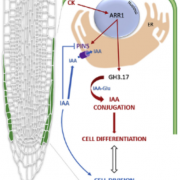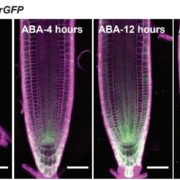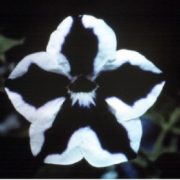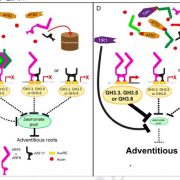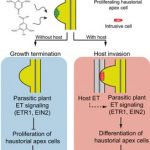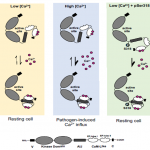Ethylene independent functions of ACC in Marchantia polymorpha (Nature Plants)

Ethylene is synthesized from 1-Aminocyclopropane carboxylic acid (ACC), and ACC has long been used as a substitute to induce ethylene responses. In a new study, Li and colleagues show that ACC functions as a stand-alone signaling molecule in the liverwort Marchantia. While treatment with ethylene gas increased overall vegetative growth by increasing cell division and expansion, ACC treatment inhibited the growth by suppressing cell division. Contrary to observations in other plants like Arabidopsis thaliana, treatment with even high amounts of ACC did not result in significant ethylene production in Marchantia. Further, plants mutated in genes encoding ACS proteins – enzymes that produce ACC from its precursor – was compromised in ethylene production only by a thin margin, suggesting a large part of the hormone might be produced from non-ACC precursor(s). Thus, this report suggests divergent and nearly opposite roles for ACC and ethylene in non-seed plants and adds to our understanding of evolution of ethylene signaling. (Summary by Pavithran Narayanan @pavi_narayanan) Nature Plants 10.1038/s41477-020-00784-y


